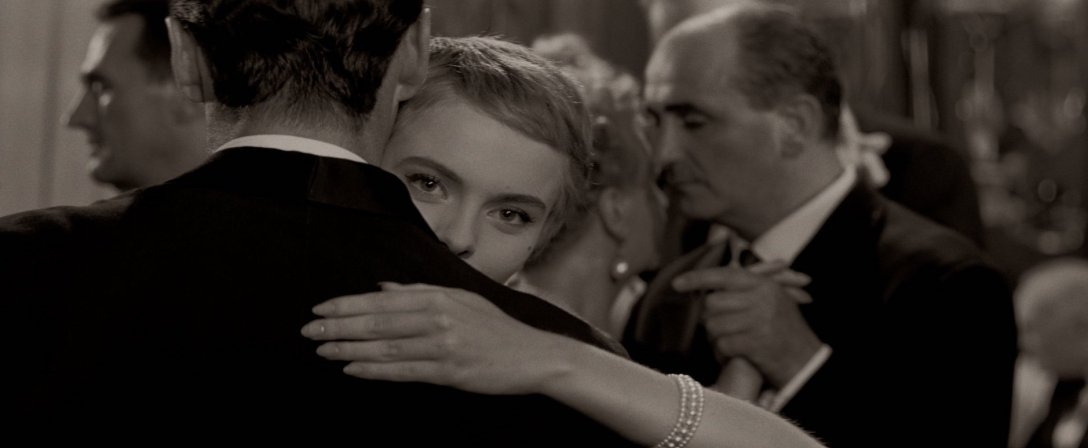Directed by Otto Preminger. Written by Arthur Laurents
The onerous company of the feckless rich must be endured to bask in the sun and live the perfect summertime life of Bonjour Tristesse, the story of a lackadaisical teenage girl, her playboy father, his latest plaything, and a family friend who’d have done well to stay away.
Cecile’s not having any fun. She’s rich, drives a fast car around, goes out to dinner in expensive restaurants, and handsome men drool over her. Yet, she confesses in a voiceover to us that she just can’t seem to find the happiness she once felt. Woe.
Preminger dissolves the black and white of the present to plunge us in the sparkling technicolor of Cecile’s supposedly happy past where she’s spending summer on the hip of the Mediterranean. Heat radiates off the screen as Cecile lounges, bathes, drinks, and plays coy with life. You’ll get a mild tan from watching Bonjour Tristesse, and the taste of champagne will linger from start to finish as Cecil lives in bliss on the hot rocks and in the cool shade.
David Niven is Cecile’s father Raymond, a real charlatan who’s failed as a parent, becoming instead Cecile’s friend so as to avoid the responsibilities of child rearing. She’s the first woman he abandoned, you might say. They’re confidants instead, and she watches Raymond chase skirts, while she entertains the attention of men as long as they interest her. The length of their relationships have the shelf life of cheese left out in the sun.
Until Anne shows up. A friend of Cecile’s mother, she’s more steadfast and less susceptible to Raymond’s schmoozing, so he’s naturally keen on the conquest. Cecile doesn’t like no longer being the only woman in Raymond’s life, so she hatches a little scheme she believes to be innocent on the whole. Innocent to people like Cecile and Raymond, mind you.
It’s easy to dislike Cecile and Raymond, so credit’s due to Jean Seberg and David Niven for bringing both to life. Seberg is a young temptress, beautiful and well aware of her own beauty, and the ease by which everything in life comes to her makes her take it all for granted. She feels victimized by the perpetual listlessness her easy life inspires. Niven’s terrific too as a greasy old bachelor who only connects with Cecile over their shared worst qualities. Their lack of commitment, follow-through, and empathy for those they come across.
There’s the joust of Bonjour Tristesse. The seductive setting of the Mediterranean coast and Ceclie’s beautiful life, and the vexing experience of watching disagreeable people enjoy it. Not to say it’s a movie sympathetic to the bored elite, as Preminger’s direction of Laurents’ script has characters put themselves on display with their attitudes, actions, and (thin) justifications thereof.
There are onerous morals at play in Bonjour Tristesse, but Preminger also lets you watch why its characters might not think it so. Everything’s a game and everything’s disposable. People carry the same consequence as pebbles on the beach. Pick them up, fling them from you, and enjoy the fleeting splash.
With its dubious morality and splendid setting, Bonjour Tristesse is a predecessor of sorts for movies like Purple Noon and La Piscine, making for a trio of quintessential summer movies with black hearts, only that sinister kernel is lodged deep in the succulent flesh that is intoxicating summertime.

[…] six times, but looking at her work here, or in Black Narcissus, Separate Tables, The Innocents, Bonjour Tristesse, Night of the Iguana – take your pick, honestly – you begin to feel any list of acting greats […]
LikeLike